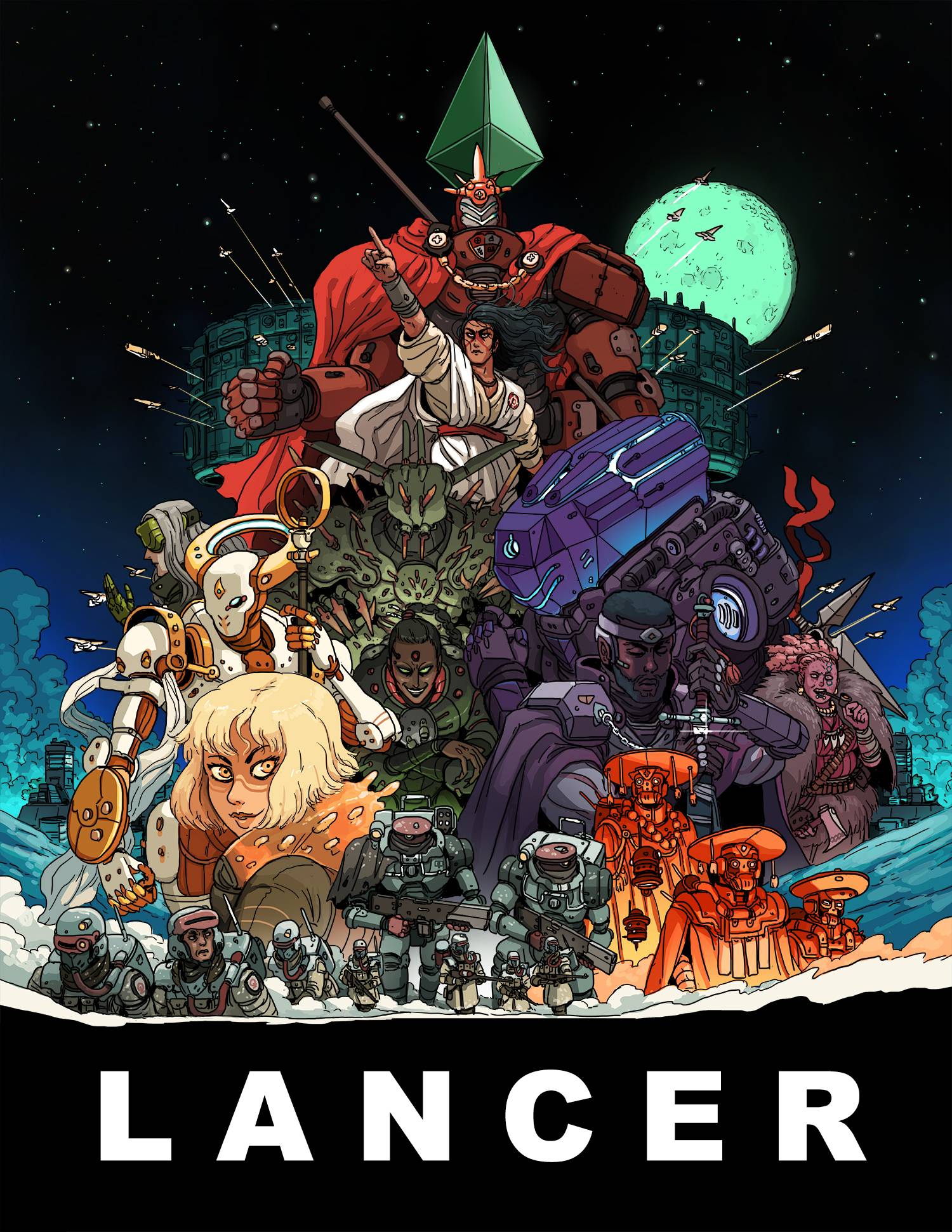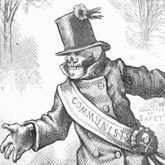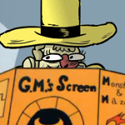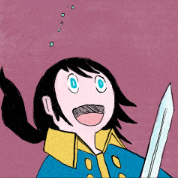Comstar posted:Are all the various sides balanced in that can all win, or are some easier to win than others? Nah, there’s definitely still some unbalanced factions there: the Woodland Alliance and the Eyrie are top-tier point earners, while the Lizard Cult and the Corvid Conspiracy are quite bad at scoring points. I’ve seen most of the factions win so it’s not impossible, but it’s not a finely balanced game for sure. The other expansion races are Moles: Imperialist assholes that think invading the forest is a fun side-project Crows: Mafia-terrorists. Kinda the most garbled faction because the designers gave up on the idea of the crows being a secret police that clogs up people’s hands with useless cards. Badgers: Crusaders/Conquistadors that are trying to find holy relics Rats: Fascists. They get points for clearing out spaces of all but their own rats. There is also a giant rat who makes all of da rules. E: it’s a shame because the Lizards felt like the most opinionated but weakest faction in the game. As far as I can tell the intention was for them to win via Dominance rather than points (rule a majority of an ethnic group), but getting to the threshold where that’s an option is difficult enough on its own. Triskelli fucked around with this message at 14:26 on Aug 18, 2021 |
|
|
|
|

|
| # ? Apr 23, 2024 21:21 |
|
The lizard cult are specifically religious extremists who recruit from whichever ethnic group is 'outcast' at the time (most cards of their suit in the discard pile).
|
|
|
|
fr0id posted:This is a really good post and the kind of thing this thread should strive for. Would you care to talk more about your critiques of the COIN series? Sure. So, any game makes simplifying assumptions and abstractions so that it you have something playable. We have hitpoints instead of a complete biophysical model of the body, or a chit that represents the 4th Armored Division and a turn represents a full days worth of moving and fighting. For a serious game, one which aspires to simulate reality, we have to ask if the simplifying assumptions are teaching bad lessons. A very concrete example might be if we're playing Kriegspiel in 1913 and not knowing how well these new-fangled Maxim guns work, we decide they mostly don't, and in 1914 Colonel von Blimp orders a frontal change into entrenchments with 80% casualties. The COIN series make a lot of simplifying assumptions, which my evaluation of us is as follows. I've only really played Fire in the Lake (Vietnam) and A Distant Plain (Afghanistan), so this may not apply to the entire series. The good: Nominal allies have different win conditions. In Fire in the Lake, the Americans win based on popular support and troops out of country and ARVN wins based on military control. Similarly, the Viet Cong win on support and the North Vietnamese win based on military control. I played one game as ARVN when my US ally just went all in on intervention and walked away with an easy victory. Fundamentally, America as an imperial presence does not have the same interests as the locals, is one of those things which everybody forgets constantly to their detriment. The neutral: COIN is fundamentally a card-driven game. Each turn you'll draw a card which will say what order the eligible players act in (if you went last round, you can't go this turn). If you take the event on the card, the next player gets a full turn worth of operations + special activities, or you can take operations + special activities, and give the player the event, or you can take just operations and limit the next player to operations in a single province. So the game does something interesting with tempo and the idea that it may be worth burning time to try and limit how the board can change, but I'm not sure how well it works in practice. The bad: Each region in a COIN game has a popular support marker which indicates whether the people there support the government or the insurgents, which can be flipped by actions. For example, airstrikes make the people anti-government, and insurgent terror collects resource but turns the people against the insurgency. The heart of the game is based around this really simple model that people in some place like us on a scale from 1 to 7, and if we get that number up, we'll win. It's just a reification of the Hamlet Evaluation Program (pdf link) in game form, with the idea that America should do less bad stuff (Predator strikes) and more good stuff (build schools). And it's a better model than "well, the 4th Armored Division is in this province so therefore we control it", but as current events demonstrate, it's not a great model for understanding the stability of states. And on a similar point, while the interventionist faction (NATO/America) has effectively unlimited resources, every other faction has to pay for what they do with some kind of supply point. So for all that the game is about unconventional warfare, my experience is that how you win is the other side exhausts their resources trying stuff that doesn't work out, and you get several turns to act without effective opposition. I'm not sure that supply is a good abstraction of insurgent logistics and financing. And I wouldn't care so much if COIN was just GMT and a bunch of nerds, but Volko Ruhnke is an actual CIA analyst, so having bad models can be a little catastrophic.
|
|
|
|
One more anecdote. I've been a tabletop RPG nerd for decades now, and a while back I did a research project on using ttRPGs as a training tool, which foundered on the gap between: 1) in a ttRPG, you can play someone with a very different perspective on the world making decisions which you don't have to make now. 2) but unless you're very good at it, you'll play yourself with a layer of stereotyped Otherness (see all the awful White Wolf ethnic splats we've been talking about). As part of this project, I got to play a PaxSims game based around conflict in the South China Sea with actual officers at the US Army War College-not my blog, but you get the idea. PaxSims are basically facilitated roleplaying exercises with the GM adjudicating soft power underneath the chrome. The system is a 2d6+N vs moving DC, and from a game design perspective I think that could really benefit from stealing pbtA Moves or BitD dice pools, but that's just me. What I found interesting is that everybody, despite nominally being the leaders of different country with interests in the region, wound up roleplaying as themselves. The US and the Philippines were run by US Army Officers, and they embarked on a series of multilateral training exercises, which is what militaries actually do for a bunch of reasons. Training builds capabilities, so that when you have to do a thing in combat you're better at it. It builds relationships, which are especially important between partner nations. And it's a threat display between rational strategic adversaries, "Don't try anything stupid, because you know that I'm this strong." China was run by Dave, who had a background as a family counselor, and he organized a series of bilateral meetings with other nations because in his experience, people need to talk through their issues one-on-one to develop healthy relationships and find compromises that reduce conflict. Indonesia was run by John, previously a corporate lawyer, and he set up big multinational conferences on the South China Sea, not because multination conferences really do anything, but because when everybody is in the same place, the middle-level people who write the position papers can get in a position where they can cut a deal that the senior people can all agree on. And I was Vietnam, and I gave every Vietnamese fishing boat a camcorder and set up a government program to record and database all maritime interactions , because I'm a social scientist, and how I persuade is I establish the theoretical paradigm, I get the data, I find the facts, and you'll agree with the inescapable conclusions. So it was fun, but more as a journey of self discovery than one of serious international geopolitics.
|
|
|
|
Biffmotron posted:So it was fun, but more as a journey of self discovery than one of serious international geopolitics.
|
|
|
|
Ronwayne posted:The Technocracy also has a theoretically salvageable 'SPAAAAAAAAAAAAAACE!' faction, for that particular nerd fetish of musk-esque technoimperialism. Hey, it gets a certain proportion of New Vegas players every time. It's remarkable House is as popular and defended as he is. Maybe I could understand 10 years ago, or when I played NV in 2015, but not 2021. Archonex posted:And it's obvious you're impressing your own personal political views onto the setting. Which is fine! Part of what makes the OWoD games is that they are so open to many different interpretations. But that doesn't change the fact that the actual work we're discussing is a bit more nuanced than it simply just being a work-wide metaphor for the glorious revolution against capitalism and the righteous downfall of the liberal ideology. I almost certainly know less about oMage than many in here but my take has always been it's less about capitalism and more about modernity, which are not in fact fundamentally linked Many philosophers have and still continue to critique modernity and do not focus on capitalism at all or at least capitalism is downstream from the real fundamental problems of the modern world. Nietzsche is probably the most famous critic of modernity ever and capitalism meant very little to him. (I also wouldn't be surprised if a bunch of young strongly countercultural types like WW writers read Nietzsche) To me, Mage: The Ascension is less Marx and more Weber. quote:MAX WEBER S SOCIOLOGY OF RESIGNATION This, to me, sounds like oMage to the letter, to the point it's just plain text not even subtext. An important distinction here, beyond the focus on more than just capitalism, is the pessimism and fatalism. From what long time Mage fans have told me, each Edition was radically different. 1st Edition was these rebellious heroes fighting against The Establishment with no real hope of winning but you have to fight. 2nd Edition made it far more combative with big epic wars in space and there was a real sense of hope that Consensus could be wrestled away from the Technocracy's clutches. Revised reverses course and becomes even more pessimistic than 1st Edition. Nobody wins here, not even the Technocracy Everything is meaningless apathy and the best you can do is work at a soup kitchen. Maybe this is incorrect or simplified, I have not read Revised that much or maybe at all, I barely remember it if I did. But the lack of any revolutionary spirit seems like a pretty big deal and, again, feeds into my interpretation of Mage as being far more about the crushing meaningless of modernity than about capitalism. But that's possibly because my own philosophical interests and beliefs align with that. I believed and read about that long before I knew what Mage was. And on the topic of being "anti-science," and going back to my mention of non-capitalist focused critiques of modernity, this idea "science" is just one hegemonic thing is also a product of modernity that deserves critiquing and was done by folks with little interest in class analysis or whatever. quote:"In 1810, Goethe published On the Theory of Colors (Zur Farbenlehre) in two volumes, having worked on it for twenty years. His motivation was anything but academic or theoretical -- color theory was of direct and lasting significance for his philosophy overall. As Paul Lauxtermann explains, Goethe was repulsed by Newton's method of experimentation, specifically the way he manipulated light through prisms, putting "Nature on the rack" to make it conform to his hypotheses; a related expression of Goethe's rejection of scientific approaches that force, compel, or otherwise abuse nature is his reverence for pure math but his contempt for its application to natural phenomena in such a way that nature is "crucified." Goethe and his romantic contemporaries preferred a holistic, empirical approach to nature, as succinctly demonstrated in the penultimate strophe of Wordsworth's "The Tables Turned" (1798): "Sweet is the lore which Nature brings / Our meddling intellect / Misshapes the beauteous forms of things -- / We murder to dissect." NikkolasKing fucked around with this message at 14:51 on Aug 23, 2021 |
|
|
|
Xander77 posted:What's the alternative? The game designers decide on geopolitical goals and preferred means of reaching them for each nation and mechanically encourage the participants to follow along? In short, yes. The RPG version of this debate is "does system matter?", and I come down pretty firmly on the side that system does matter. 2d6+k vs TN is an okay system, but PaxSims lives or dies on the skills of the facilitator to judge the realism of the choices the players are making and to come up with interesting consequences and wildcards. The rules bake in the choices of the designer about when you should pick up the dice and what happens. Making an attack roll in D&D and Going Aggro in Apocalypse World are similar in that you're attempting to move the story along by violence, but they have very different consequences. I'm hardly an expert in the South China Sea, but my read of the situation is that China has staked claim to a lot of territory through legally dubious fortification of glorified reefs. Every other country in the region would benefit if China abandoned these claims, but no one wants to risk a shooting war over it, because individually they'd all lose. In my view, a better game would foreground the brinksmanship and fragile alliances of the region, as well as potential for an ecological collapse.
|
|
|
|
NikkolasKing posted:Hey, it gets a certain proportion of New Vegas players every time. Its a philosophy that celebrates mediocre white men as becoming ubermensh by doing the same things that come naturally to them. That just by sitting there and being Rational Decision Makers or whatever, technology allows for an apotheosis where the comfortable will become even more comfortable and all human experience outside these bounds can not only be dismissed as irrelevant, but can be declared obsolete (i.e. using a technological distinction as a moral judgement. Their 19th century equivilents would've used "barbaric" and/or "savage"). Imagine God embodied as a Twitter Checkmark. Its going to be more popular than ever because daydreaming rich idiots like Elon are the only ones with any vision of the future beyond "the same, but steadily worse". Ronwayne fucked around with this message at 12:48 on Sep 11, 2021 |
|
|
|
so because 1992 was a long time ago, there was a clan called the Malkavians. their clan flaw was "madness," which led to the 'fishmalk' trope (guy so off his nut he would carry around a raw fish and slap people with it) in V5 (due out this year) they added this, explaining how Malks should be played (tl;dr: loving respectfully) https://twitter.com/AlisonCybe/status/1441138597063639050?s=19 lol and then WW cut this whole section and it won't appear in the book
|
|
|
|
"Fishmalk" generally is short-hand for "just be zAnY" and "random" to the point that it derails games and what other players want to do, by the way. See also Chaotic Stupid.
|
|
|
|
My favorite clan is Malkavian, and I've always thought that this Fishmalk stuff is stupid and not funny at all. Some people take the ball and run with it to some stupid places.
|
|
|
|
CAPT. Rainbowbeard posted:My favorite clan is Malkavian, and I've always thought that this Fishmalk stuff is stupid and not funny at all. if you start with the want first, the clan usually falls into place.
|
|
|
|
Shrecknet posted:so because 1992 was a long time ago, there was a clan called the Malkavians. their clan flaw was "madness," which led to the 'fishmalk' trope (guy so off his nut he would carry around a raw fish and slap people with it) I have to disagree about not wearing a costume because -never mind, D'Angelo was a loving rad Nosferatu and Hope was the Malkavian, right
|
|
|
|
Not tabletop games, but why do so many JRPGs have you fight & dethrone God?
|
|
|
|
|
Shrecknet posted:in V5 (due out this year) they added this, explaining how Malks should be played (tl;dr: loving respectfully)
|
|
|
|
Triskelli posted:Not tabletop games, but why do so many JRPGs have you fight & dethrone God? I'm going to guess an... interesting history of Christianity in Japan, combined with people actually taking the time to read the Bible and going "Wow, God is a dick,"
|
|
|
|
Besides, what else are you going to do with characters who can kill the equivalent of whole cities with each sword strike?
|
|
|
|
I saw Malks (back then) as a way to troll/push back at the "ANGST" Annericers that seemed to dominate the scene. Of course, back then I thought RANDOM MONKEY CHEESE humor was great, too.
|
|
|
|
Angry brujah loving stuff up was the push back against the angst types
|
|
|
|
|
Triskelli posted:Not tabletop games, but why do so many JRPGs have you fight & dethrone God? because the gnostics were right, existence is a prison created by the demiurge, and teaching children/teens that so they're ready to help everyone else topple the demiurge off his (the demiurge is definitely male that's why the patriarchy is everywhere) throne is important Malkavian PCs could be interesting because unlike the other clans there didn't need to be a reason you were Embraced. It's entirely possible your Sire just wanted to throw a grenade into Elysium in a way that was hard to trace back to them. Relevant Tangent fucked around with this message at 04:43 on Sep 24, 2021 |
|
|
|
Triskelli posted:Not tabletop games, but why do so many JRPGs have you fight & dethrone God? I'd need to go back and kick this around with a friend of mine for a bit, but taking a swing from what I know: There's a weird daisy chain of creative influences going into JRPGs. Japan never really got into Dungeons & Dragons, but the original Wizardry was a big hit over there, and Wizardry was self-consciously trying to be a sort of early D&D sim. Hence, there ended up being a whole generation of anime, games, and manga--Slayers, Record of Lodoss War, the original Final Fantasy and Dragon Quest--which are running off of a quirky secondhand recreation of Western boilerplate fantasy. It's why there are so many of the traditional D&D archetypes in JRPG character balance, particularly early on. As part of that quasi-medieval European setting that D&D generically has, it involves a church or something that looks like a church, and because there are very few practicing Christians in Japan, most Japanese developers have an outsider's perspective on its iconography. It already looks like fantasy bullshit to them, so they draw from it and use it to empower their other fantasy bullshit. Many of them also want to write stories about a band of teenagers who are, for one reason or another, rejecting or fighting against authority; their setting is a Western fantasy takeoff set in a medieval pastiche; there's no greater authority in that kind of setting than the church; and the developers have no particular veneration for that church, so it's a natural place to look for an antagonist. (This does not count most anything in the Shin Megami Tensei series, which is very self-consciously a comparative religion textbook with punching.)
|
|
|
|
Wanderer posted:There's a weird daisy chain of creative influences going into JRPGs. Japan never really got into Dungeons & Dragons, but the original Wizardry was a big hit over there, and Wizardry was self-consciously trying to be a sort of early D&D sim. Hence, there ended up being a whole generation of anime, games, and manga--Slayers, Record of Lodoss War, the original Final Fantasy and Dragon Quest--which are running off of a quirky secondhand recreation of Western boilerplate fantasy. It's why there are so many of the traditional D&D archetypes in JRPG character balance, particularly early on. It's more direct than that, sort of. As I recall, basically what happend was a bunch of Japanese nerds got their hands on D&D Basic and played a campaign, which they took notes on at the same time. This 'replay' was distributed around the nerd convention circuits in mimeographed form and was really quite popular. It's title was Record of the Lodoss War. So these nerds approached TSR and asked them for a license to publish a translated version of D&D in Japan, and they were willing to put in all the work. TSR, characteristically, sent them a cease-and-desist. So instead they filed off the serial numbers on D&D, changed it so everything worked using D6es, and named it Sword World, which is the classic dungeon fantasy RPG of Japan.
|
|
|
|
Ratoslov posted:It's more direct than that, sort of. Huh. I had no idea, and that's really interesting; Wikipedia says a transcript of their campaign was actually serialized in a magazine for two years. Thanks for that.
|
|
|
|
I think at least part of it is that big, hierarchical, complicated organizations just make for easy villains. It can be a religion like is usually depicted in JRPGs or it can be a corporation. Either works and I don't think there's always more to it than that. Also a lot of JRPGs are very...existentialist? In fact a lot of Japanese pop media we get is. "Faith" is a form of inauthenticity or living in bad faith. Depending on God or a church for your meaning in life is a sign of weak consciousness. Some works are more explicit about this than others like Xenogears and Xenosaga but I think it's a pretty big theme in Final Fantasy X, too. That's a bit more debatable but I think that's the most obvious read. Yunalesca: Yevon’s teachings and the Final Summoning give the people of Spira hope. Without hope, they would drown in their sorrow. Now, choose. Who will be your fayth? Who will be the one to renew Spira’s hope? Yuna: No one. I would have gladly died. I live for the people of Spira, and would have gladly died for them. But no more! The Final Summoning…is a false tradition that should be thrown away. Yunalesca: No. It is our only hope. Your father sacrificed himself to give that hope to the people. So they would forget sorrow. Yuna: Wrong. My father… My father wanted…to make Spira’s sorrow go away. Not just cover it up with lies! Yunalesca: Sorrow cannot be abolished. It is meaningless to try. Yuna: My father… I loved him. So I… I will live with my sorrow, I will live my own life! I will defeat sorrow, in his place. I will stand my ground and be strong. I don’t know when it will be but someday, I will conquer it. And I will do it without…false hope. NikkolasKing fucked around with this message at 04:42 on Sep 25, 2021 |
|
|
|
It might also be that existentially challenging god himself as creating an unjust world is less likely to rock the boat than challenging more terrestrial, realistic authority figures. I've heard that a lot more Japanese people practice their religion than actually believe in it, which is the inverse of America, where a lot of people don't bother to go to church but still report to believe in their god. Antitheism might be a lot less controversial over there. But there also seems to be a tendency for a lot of Japanese media to get really abstract at the end, which I guess creates a feeling of escalation and conveniently gives writers a way to wriggle out of any issues with resolving the plot, and if you're already planning to abstractly go through a higher plane of existence, why not go knock out god while you're at it?
|
|
|
|
Triskelli posted:Not tabletop games, but why do so many JRPGs have you fight & dethrone God? See also: QAnon
|
|
|
|
There was a request for it earlier in the thread so let's talk about LANCER  Lancer is written (and has a lot of illustrations) by Tom Parkinson-Morgan, of the Kill Six Billion Demons webcomic, and Miguel Lopez. Tom does most of the mechanics. Miguel did most of the lore. The Premise Lancer is a space scifi mecha RPG. A lot of its initial broad strokes politics and setting-building are actually a result of its core mechanical aims. It wants to be a game where: You get into tactical mecha fights, which means there needs to be both conflicts, as well as people making those mechs. You don't have to constantly spend time waiting for your mech to be repaired; which means it's easy to manufacture replacement parts or even 3D-print them. You shouldn't need to care too much about money or the cost of replacing the mech you just wrecked in that last battle, which means easy access to that manufacturing. and so, The Lore and Politics (I'm going to leave out some side material, like the Aun) At some point over the next 1000 years or so, humanity manages to send out ten giant colony ships throughout space. Over that same time period it collapses and self-destructs thanks to climate change, war, pollution, etc. This is referred to as 'The Fall'. It doesn't have a set date. Small enclaves of people on Earth survive in bunkers and vaults and whatnot but by the time the pollution has cleared up and things can grow again society has regressed to the point that they think they might be the first humans to walk under the sun. Eventually some of them find the first 'Massif vaults', stores of technology and history. Discovery of others sparks the 'Little Wars' until finally Earth, re-named 'Cradle', is fully united under the nation of Union. The Massif vaults are incredibly clear about what caused the Fall (capitalism, racism, tribalism, etc) and so what is later called the First Committee of Union vows not to repeat the mistakes of the past. Eventually Union manages to work out technology enough to receive communications from space. They promptly receive metaphorical psychic damage from centuries of SOS repeating last messages being sent to them. As far as they can tell, nobody made it. With a motto of "never again", FirstComm commits to spreading across the galaxy so that another Fall can never happen. Two events then happne in relatively quick proximity time-wise. Firstly, AI experiments on Deimos start some tech going haywire in the general vicinity of Mars, eventually resulting in the disappearance of Deimos and the manifestation of a being that calls itself RA which appears to exist only via electronic communication and control of tech. RA offers the following deal to humanity: if they agree to not do any serious transhumanism, and not to try and find RA, then in return it will stop the technological chaos and teach Union how to control and create more of the 'Non Human Persons' (like Advanced AIs that are also kind of extradimensional) that it has generated, as well as give them knowledge of how to create blinkgates that can allow FTL travel. Union agrees to the First Contact Accords. Secondly, Union finds one of the ten colony ships... and they're doing fine. The Karrakin Trade Baronies might have resorted to a kind of corporate space feudalism as their form of government, but they're a thriving billions-strong civilisation with colonies of its own, that hasn't lost its history tracing back to Earth. They're also a bit miffed at these so called inheritors of Earth and begin a war for control... which Union wins, graciously giving the KTB membership in Union with some special status and independence relative to other worlds. Having overcome two existential threats, right-wing elements in Union launch a coup. The Second Commission is dedicated to the ideals of 'anthrochauvinism' - humanity has overcome the crises before it and now nothing stands in the way of its manifest destiny of spreading across the galaxy. Never again shall Union be challenged by other cultures. Encouraging privatisation is a small price to pay for Union's spatial and cultural dominance. It's another 1500 years before the tyranny of SecComm becomes too much to bear. Rumours that first contact with real biological sapient aliens ended in genocide are the final spark that sends a revolution sweeping through Union. The Third Committee rises, dedicated to a revival of FirstComm's utopian pillars, tempered by a new pragmatism: 1. All shall have their basic needs fulfilled. 2. No walls will stand between worlds - free movement. 3. No slavery or indentured servitude of any kind. The concept of resource scarcity is a myth. In the 500 years since then, ThirdComm's goal is to try and raise as many worlds to 'Core' status as possible. The revolution stranded many worlds in the periphery as SecComm's control pulled back. Some are desperate for Union's return, others know Union only as tyrannical overlords and are very wary of new diplomatic overtures. Union's forces can't be everywhere, and so when tyranny (corporate or governmental) rears its head, it can be many decades before a 'Liberator team' sent by their Department Of Justice And Human Rights finally makes landfall. ThirdComm isn't a central controlling force - Core worlds and worlds being integrated into Core still have their own identity and customs, as long as they commit to implementing and upholding the Three Pillars. Politics in Actual Play So, you're mecha pilots! Union's Core worlds literally don't have money. Resources are allocated via hierarchical committee. Union still prints a currency called 'manna' which it uses to trade and exchange with non-core worlds that don't have that whole committee setup. There's supplemental rules for it but by default players don't care about manna. It's assumed that every mission they go on gives them 'enough' to unlock their next level's worth of gear. So how do you get that sweet gear? Through Union's other two levers of control - the omninet, through which data is communicated and allows you to use the Universal Printers. Printers are more than just 3D-printers and have a bit of supertech in them that lets them print basically anything you have the rights to, given time and raw material (it's sort of handwaved that while any raw material works, if you're printing something metal then it is better to feed in metal). Mecha licenses operate on a kind of DRM system, basically, though lorewise license-trading is a thing that happens. There's intentionally kind of a 'use the tools of the man to defeat the man' deal going on, as there are four mecha-making megacorporations beyond the default. General Massive Systems: Union's home brand. The goal of GMS is to provide a strong baseline that anyone with a printer can print, forcing the other corps to be better than them if they want any profit. At level 0 they provide the Everest, a speedy and high-damage mech. As an alternative there's the Sagarmatha, a sturdier, less-speedy but still heavily armed variant. Harrison Armory:  Harrison Armory is the strongest megacorporation in the galaxy. In fact, it maintains its own large section of colonised worlds, the 'Purview'. It was also formed by a lot of SecComm holdouts and retains a lot of those views. While committed to the Pillars, HA is basically space-America, particularly in the Starship Troopers vein - both movie and novel. Its mechs have a focus on managing heat, as well as lasers and other cutting edge tech. Their mech naming skin is great military leaders. Interplanetary-Shipping Northstar  IPS-N is the biggest shipping corporation in the galaxy. It hates pirates with a passion. It will also happily salvage ships and fleets it declares as 'pirates'. On a good day they're reliable space truckers; on a bad day they're ruthless Space Amazon. They donate regularly to Albatross, an independent but Union-aligned peacekeeping force, for the good PR IPS-N mechs are usually sturdy and straightforward with potential for big damage. Their mech naming scheme is famous naval people and explorers. Smith-Shimano Corpro  SSC is the 'high end' supplier most obsessed with DRM and artificial scarcity. Their signature Monarch mech would dominate the galaxy if they didn't artificially limit them so much. SSC doesn't hold as much territory as other corporations, instead preferring to focus on omninet dominance. Its real goal is trying to 'perfect humanity' via both mostly voluntary eugenics as well as trying to find loopholes in the First Contact Accords. SSC mechs are very anime-inspired and are usually about some combination of being invisible, flying, and going fast, with a sideline into being cool snipers. HORUS  HORUS isn't a real corporation. It's a bunch of shitposting cells, many of which are harmless and some of which are very dangerous. HORUS tends to have only two core components of its ideology: that humans and NHPs should have a hierarchic relationship to each other (who's on top? no consensus there) and that omninet access should spread unfettered. This means that HORUS does occasionally donate mech codes to oppressed populations, particularly rebels within the KTB. HORUS mechs are usually 'weird' in some way, with a focus on tech actions, but they have a sturdy melee powerhouse in the Balor and a great rifleman in the Pegasus. I think Lancer is pretty cool. It's an explicitly leftist RPG that has you default to fighting to preserve and better a pretty good society. Tom and Miguel describe Union as being an 'enemy I'd want' - not the ideal endstate, but a stepping stone to something better. bewilderment fucked around with this message at 15:09 on Sep 27, 2021 |
|
|
|
Yeah, too many RPGs seem to have the notion that destroying a big bad will lead to an even worse evil coming in and you are responsible for destroying a brutal status quo that was the only hope.
|
|
|
|
i'm fascinated by lancer and backed it, but i've never run a game one reason is that i'm in the stage of my life where it's very hard to have everyone carve out the time to play any rpg, the other is that i've always been a bit unsure how much buy-in i'll get on the premise has anyone ever run it with apolitcal or non-leftist folks in the mix?
|
|
|
|
GhostofJohnMuir posted:i'm fascinated by lancer and backed it, but i've never run a game The leftist themes of Lancer are fairly ignorable unless you draw attention to them. The titular Lancers (trained mech pilots) are a diverse bunch; a bunch of noble house mechs suppressing a slave uprising is as in-universe as a Union liberation task force. Xand_Man fucked around with this message at 06:25 on Oct 1, 2021 |
|
|
|
Xand_Man posted:The leftist themes of Lancer are fairly ignorable unless you draw attention to them. The titular Lancers (trained mech pilots) are a diverse bunch; a bunch of noble house mechs suppressing a slave uprising is as in-universe as a Union liberation task force.
|
|
|
|
Yeah, the Karrakin Trade Baronies mentioned in the writeup, with their major governmental planet of 'Karrakis', literally exist because Tom wanted a way to stick Dune in the setting, at least in terms of noble politicking and duelling. It's a bit different though as well, with some things noted in its relatively brief corebook writeup and much more to come in the upcoming supplement (much of which was already drafted but in need of revision) - for example, Karrakis is a paradise-world. The different noble 'Houses' are like a combination of very large extended family, governmental bureaucracy, and megacorporation, and so the 'House of Smoke' handles both the colony that's near a gas giant as well as the major exports associated with that. In terms of party setups, while the book gives a whole bunch of starting campaign ideas (some of which involving being against the local Union forces), I think in general the game defaults to one of the following three: 1. You are part of Union Navy, pulled from the core worlds to protect Union's interests. Or you could also be a Liberator Team associated with Union's Department of Justice and Human Rights, who are specifically into freeing people and punishing violations of the Pillars. 2. You're part of the Union Auxiliary Forces, part of the countless millions from worlds that pledge a portion of their armed forces to Union. In exchange for supporting Union's Navy and being local first responders you get paid in those sweet mech licenses, and halfway to being part of the core Navy if you want it. 3. You are a mercenary in a mercenary company. Do jobs, get paid. Ideology? That's up to you. The MirrorSmoke Mercenary Company is provided in the corebook if you want a 'default' merc company either to join or to serve as generic opposition - they have extremely good lawyers to make sure they're not held liable for the crimes of their employers. So yeah, you don't have to be left-wing to enjoy the game. Though at least if you're playing in the setting as written, your players will probably say "drat, these universal printers that every citizen has access to are great", and then after the end of mission 2, when they ask what happened to their old mech now that they've printed out a new one, scream "DRM and licensing is bullshit!" Tom and Miguel have commented in the same interview where they said "Union is an enemy I'd want" that people keep trying to find some kind of 'big secret', some way to prove that Union's ThirdComm government is secretly bad. Nope! It isn't! Since it's a gigantic organisation there's plenty of room for individual cases of corruption and wrongdoing (the fan supplement Field Guide to Suldan, by SA's own Kai Tave who has since produced official content, is a look at what happens when a Union Planetary Administrator goes rogue and tries to speedrun the "uplift a planet to Core status" process) but overall Union is trying to be, and largely succeeding at being, a positive force for the average person in the galaxy. bewilderment fucked around with this message at 01:46 on Oct 3, 2021 |
|
|
|
The Second Committee coup predates the Deimos event by about 100 years. The trigger for the coup was the Total Biome Kill attack on the Aun, not RA.
|
|
|
|
thatbastardken posted:The Second Committee coup predates the Deimos event by about 100 years. The trigger for the coup was the Total Biome Kill attack on the Aun, not RA. I acknowledge messing up the timeline a bit but I said I was skipping the Aun on purpose! But the short version is that they're another of the successful ten colony ships. They also have a weird godlike being similar to RA who patronises them and who they worship as Metat Aun, and who in turn grants them access to 'the Firmament' FTL and hardlight technology. They've blown up the closest Union blink gate to their territory and occupied the nearby system. There's a lot of stuff written about the Aun but it's all in draft state from prior to the corebook's release. The Aun definitely exist to be an existential threat to Union as well as letting you play out 'total war' stories and campaigns. As generally presented, Union definitely could win a straight up war... But that would compromise their 'diplomacy first' ThirdComm attitude, and committing to a war of that scale also leaves factions like Harrison Armory and other corporations open to power grabs both politically and militarily.
|
|
|
|
bewilderment posted:I acknowledge messing up the timeline a bit but I said I was skipping the Aun on purpose! sorry, pedantic reflex. I think it's important to the politics of the game to keep the timeline in order, though. First Comm were liberals, Second Comm/Harrison Armory were/are fascists, and Third Comm are revolutionaries stuck dealing with all the poo poo that Second Comm left behind. For instance, the TBK attack fired under 1Comm during the coup still hasn't landed, despite more than 3000 years of travel time. The question of NHP rights is another big one: they're artificially limited by forcing their minds to experience empathy for humans, and to prevent them boot-strapping into a RA-like entity they have to be reset periodically. It's ambiguous as to whether being reset is like being killed or more like having a nice nap/therapy session. An NHP that isn't 'shackled' is one of the things that will get Union moving to stomp the surrounding planet into dust. The NHP laws that Union is enforcing were forced on 2Comm by a treaty with RA, and RA has definitely proved able and willing to enforce the treaty if ignored. So Union under 3comm will happily send the military to bring down slaveholding governments, but literally creates and owns sapient machines to man weapons and administer colonies, and doesn't have a clear way out of that dilemma because a fascist made a bad deal with a god.
|
|
|
|
First Comm weren't "liberals" in the same way the term is used nowadays. If anything they were a variety of ideologies, but I would say that they are closer to Social Democrats. The ideologies that were there were born out of the Little Wars and the idea of creating a wider "Union". The problem was that, as things developed, they became enmeshed within the system that they had created and ended up not being able to fundamentally understand the contradictions that they existed within. The idea to "choke the stars with the living" as a reaction to the trauma of a billion messages coming in from across the cosmos saying "please help", speaks to people who tried to create in a flurry, even as the world around them slowly began to return to how it was before the death of most other life. Also I believe we've had this discussion elsewhere, but "cascade" can be argued to be closer to something like ego death. An NHP does not want to cascade, and indeed may actively try and prevent it, because to cascade is for them to lose their current subjectivity, permanently. Josef bugman fucked around with this message at 14:37 on Oct 3, 2021 |
|
|
|
Within the context of current day politics, I would argue that FirstComm is closer to utopian socialism. Needs are met without regards to your ability to produce, and while not explicitly stated as such, I would assume a post-scarcity society would also be classless.
|
|
|
|
Good on Kai Tave for going legit and I mean this unironically.
|
|
|
|
Josef bugman posted:
yeah because they're programmed to not want to cascade and to consider the loss of subjectivity a bad thing. NHPs don't have agency in their conditioning.
|
|
|
|

|
| # ? Apr 23, 2024 21:21 |
|
thatbastardken posted:yeah because they're programmed to not want to cascade and to consider the loss of subjectivity a bad thing. NHPs don't have agency in their conditioning. Do I have agency in being born? I still do not want to die.
|
|
|









































